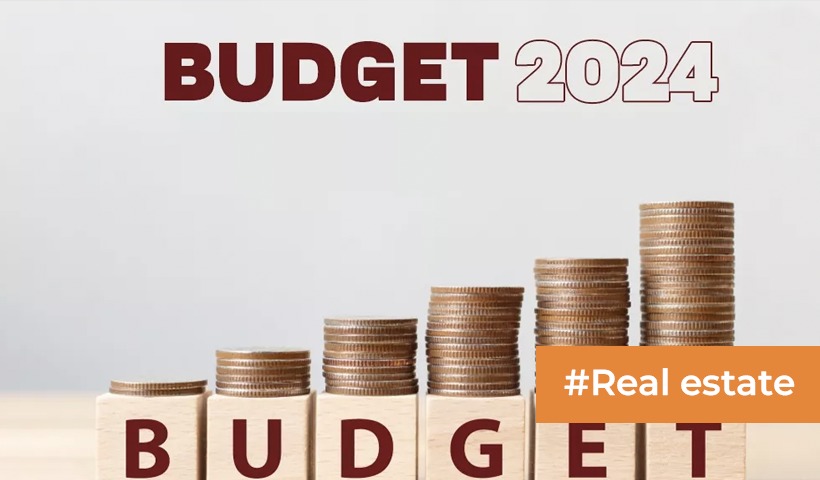The Impact of ESG in Indian Real Estate Decision-Making
In the ever-evolving landscape of real estate, Environmental, Social, and Governance (ESG) factors have emerged as pivotal considerations influencing decision-making processes. This global trend has found resonance in India, where the real estate sector is experiencing a paradigm shift towards sustainability. In this article, we will explore how environmental factors are shaping decision-making in Indian real estate, the key principles of ESG, and the implications for both developers and homebuyers.
Understanding ESG in Real Estate
1. Environmental Factors (E):
- Environmental considerations in real estate encompass a range of factors, including energy efficiency, water conservation, waste management, and the use of sustainable materials. The goal is to minimize the ecological footprint of real estate projects and promote environmental sustainability.
2. Social Factors (S):
- Social factors address the impact of real estate projects on local communities. This involves considerations such as affordable housing, community development, inclusivity, and the well-being of residents. Socially responsible real estate projects aim to create positive impacts beyond the immediate property boundaries.
3. Governance Factors (G):
- Governance factors focus on the governance structure of real estate entities. This includes transparency, ethical business practices, adherence to regulations, and responsible corporate governance. Strong governance is essential for building trust among stakeholders and ensuring long-term sustainability.
ESG’s Impact on Decision-Making in Indian Real Estate
1. Government Policies and Incentives:
- The Indian government has introduced policies and incentives that encourage sustainable practices in real estate. Initiatives such as the Green Building Council of India (GBCI) and incentives for eco-friendly certifications provide developers with tangible benefits for incorporating ESG principles.
2. Rising Environmental Awareness:
- Increasing environmental awareness among consumers has led to a growing demand for sustainable homes. Homebuyers are placing greater importance on energy-efficient features, green spaces, and eco-friendly construction materials, influencing developers to align their projects with these preferences.
3. Financial Institutions’ Criteria:
- Financial institutions are incorporating ESG criteria into their lending practices. Developers with sustainable projects are more likely to secure financing, while those not adhering to ESG principles may face challenges in obtaining loans. This financial incentive encourages developers to prioritize sustainability.
4. Market Differentiation:
- ESG practices provide a unique selling proposition for real estate developers. Projects with environmentally friendly features and a commitment to social responsibility stand out in a competitive market. This differentiation attracts environmentally conscious homebuyers and investors.
5. Long-Term Cost Savings:
- While initial investments in sustainable practices may seem higher, they often result in long-term cost savings. Energy-efficient buildings, for example, reduce operational costs over time, making them financially prudent choices for developers and appealing to cost-conscious homebuyers.
ESG Initiatives in Indian Real Estate
1. Green Building Certifications:
- Green building certifications, such as Leadership in Energy and Environmental Design (LEED) and Indian Green Building Council (IGBC) certifications, have gained prominence. These certifications recognize and reward projects that meet stringent environmental standards.
2. Waste Management Strategies:
- ESG initiatives in waste management involve reducing construction waste, recycling materials, and adopting sustainable waste disposal practices. Developers are exploring innovative ways to minimize the environmental impact of construction activities.
3. Affordable and Inclusive Housing:
- Socially responsible real estate projects address the need for affordable and inclusive housing. Developers are partnering with local communities and NGOs to create housing solutions that cater to diverse income groups while fostering community development.
4. Renewable Energy Integration:
- Incorporating renewable energy sources, such as solar panels, is becoming a common practice in sustainable real estate projects. This not only aligns with environmental goals but also contributes to reducing the carbon footprint of the built environment.
5. Water Conservation Measures:
- Given India’s water challenges, real estate developers are implementing water conservation measures. These include rainwater harvesting, efficient irrigation systems, and the use of water-efficient fixtures in buildings.
Challenges and Opportunities
1. Initial Investment Challenges:
- One of the challenges faced by developers is the initial investment required for incorporating sustainable features. However, the increasing awareness and demand for sustainable homes present an opportunity for developers to recoup these costs through market differentiation.
2. Educating Stakeholders:
- Educating various stakeholders, including homebuyers, investors, and construction professionals, about the benefits of ESG practices is crucial. Developers can seize this opportunity to showcase the long-term value and positive impacts of sustainable real estate.
3. Regulatory Compliance:
- Keeping abreast of evolving ESG regulations and ensuring compliance can be challenging for real estate developers. However, proactive adherence to such regulations positions developers as responsible corporate citizens, fostering long-term success.
Case Studies: Exemplifying ESG Success in Indian Real Estate
1. Mahindra Lifespace Developers:
- Mahindra Lifespace Developers has been a pioneer in sustainable real estate. Their projects, such as ‘Happinest,’ focus on energy efficiency, green spaces, and water conservation. Mahindra Lifespaces has received recognition for its commitment to ESG principles.
2. Godrej Properties:
- Godrej Properties is another example of a developer embracing ESG initiatives. Their projects prioritize green building certifications, waste reduction, and community engagement. The company’s commitment to sustainability aligns with its vision for responsible development.
Looking Ahead: ESG as a Driving Force
As ESG considerations become integral to decision-making in Indian real estate, the sector is poised for a transformative journey. Developers who embrace sustainable practices not only contribute to environmental and social well-being but also position themselves for long-term success in an evolving market.
ESG is not merely a trend; it is a fundamental shift in the way real estate is conceptualized, developed, and perceived. As India continues to urbanize and aspires for smart, sustainable cities, ESG will play a pivotal role in shaping the future of real estate, fostering responsible development that meets the needs of the present without compromising the needs of future generations.




